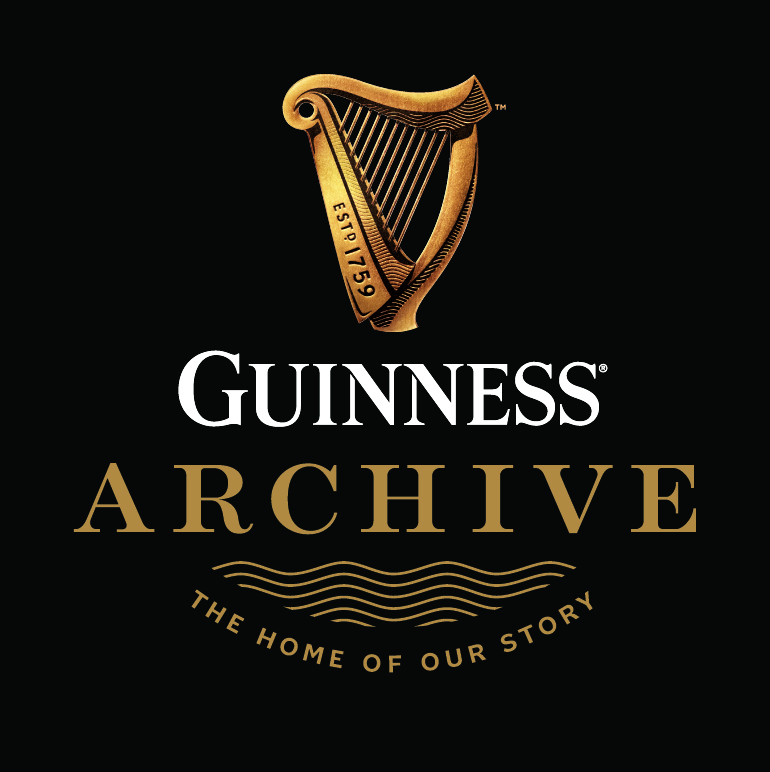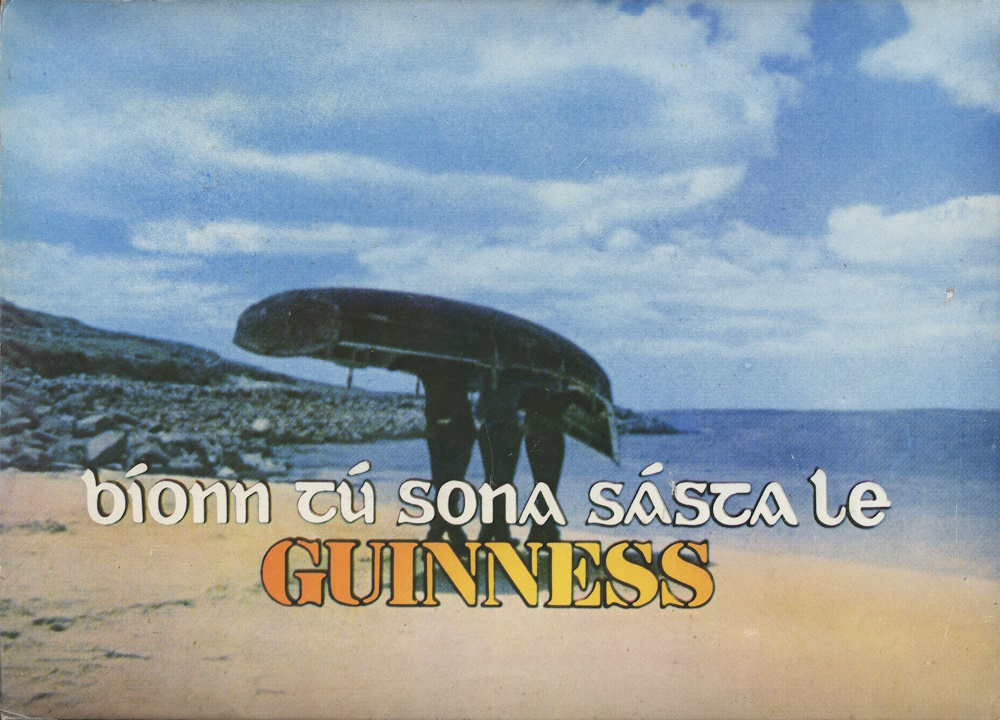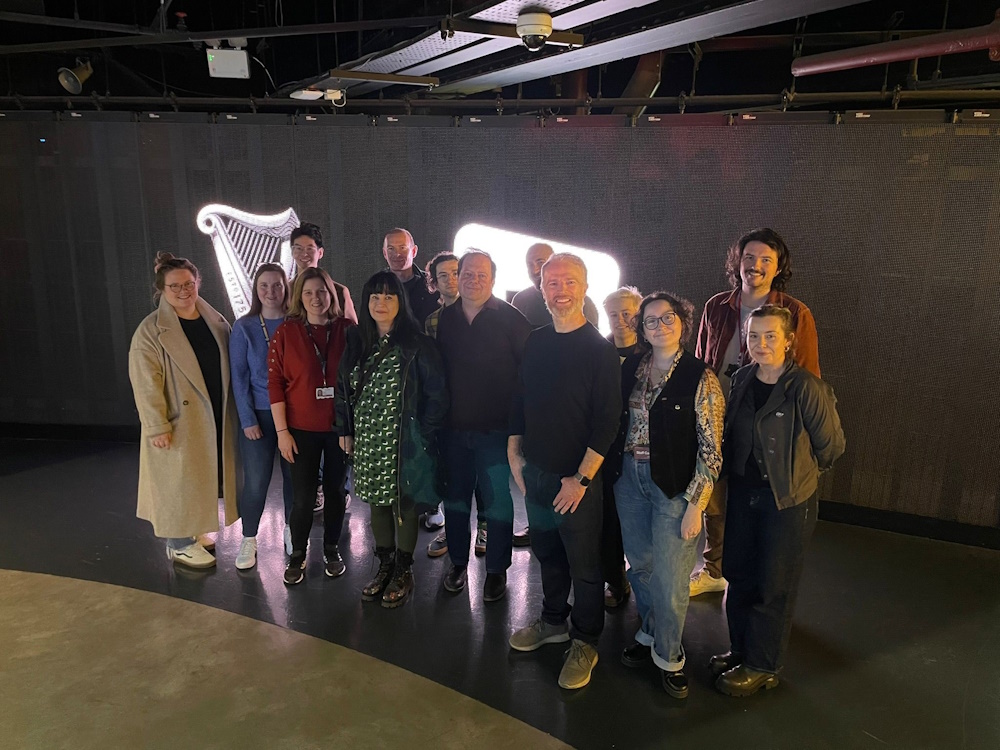
The Guinness Archive contains material spanning a variety of mediums from paper to photographs to artefacts and born digital files. Part of the Archive includes a film collection amounting to several hundred 16mm and 35mm film reels.
In 2018, the Guinness Archive team decided to review this film collection, which to date had been largely inaccessible due to its analogue format, and devise a project to digitise the collection, ensure its longterm preservation and make the collection publicly available to view.
For phase 1, we decided to specifically look at the television ads for the UK and Ireland held in the film collection, which spanned 1955-1995. Guinness is recognised globally as a pioneer of modern advertising and its print and broadcast content has set the bar for advertising across global industries. Deeply rooted as it is in evolving conceptions of Ireland and Irishness, Guinness advertising reflects and affirms the national and cultural identities of a nation and its people – both within and without Ireland. The corpus of Guinness broadcast advertising also offers a unique insight into changing cultural values and aspirations over this period of 40 years.
The high cost of film digitisation and the specialist knowledge required to manage a film digitisation and preservation project, led us to a collaboration approach which has defined the project and ultimately has led to the success of the project.
The financial success of the project was dependent on the successful application to the Broadcasting Authority of Ireland (now Coimisiun na Mean)’s Archiving Scheme 2, established ‘to encourage and promote the development of an archiving culture in the Irish broadcasting sector, contribution to the safeguarding of Irish heritage”. The project was awarded a grant under this scheme as a reflection of the cultural importance of the collection.
The technical success of the project was the collaboration with the Irish Film Archive, part of the Irish Film Institute (IFI), and the national lead in preserving Irish film heritage. By partnering with the IFI, the Guinness Archive was able to utilise the technical skills of the IFI digital team and to use their digital preservation system to ensure the long-term preservation of the digital assets.
The Guinness Archive worked with the IFI Archive team to devise a workflow to manage the digitisation and QC of the digital assets. See below sample of the workflow developed to manage the digitisation of the films held by the BFI and digitised by R3Store, the digitisation partner for the project:
The project was divided into a number of phases:
-
Phase 1 – identification of all Guinness advertising film held in the Guinness Archive, the British Film Archive (BFI) and the IFI. Historically, some film had been deposited by the Guinness company with both the BFI and the IFI, and the first part of the project was to create an inventory of the entire film stock across the three institutions and create a master catalogue. The material was held across a range of analogue film formats including 16mm and 35mm positive combined-optical prints as well as 35mm mute negative originals and magnetic sound tracks. Over 500 individual adverts were identified. This phase also saw the elimination of duplication where it existed across the collection and identification of master elements to move forward for scanning. Descriptive metadata was also created for all adverts.
-
Phase 2 – creation of digital files from this analogue material through the process of film scanning. Digital formats for master/preservation files were created using raw DPX image sequencing and .wav audio files for film material. A copy of these master/preservation files were rendered in Apple ProRes format for access purposes and sharing and distribution. ProRes files produced from analogue film material were then subject to further digital restoration in post-production consisting of dirt and scratch removal and colour grading. Low-res files were also produced in mpeg formats for quality control purposes.
-
Phase 3 - Ingest of digital files created as a result of the digitisation process into the IFI digital preservation environment. This phase included creation of technical metadata and object entry, ingest and backup to digital preservation environment, batch accessioning of digital files, rawcooking to FFV1 and sip generation and ongoing quality control of digital object preservation management. In total over 500 adverts were ingested into the IFI digital preservation system.
-
Phase 4: The promotional launch of the project took place in February 2024. In order to achieve the aim of ensuring full public access to the ads, a curated selection of ads was published on the IFI Player https://ifiarchiveplayer.ie/guinness-ads/. The full collection was published on the Guinness Storehouse website https://www.guinness-storehouse.com/en/discover.
In addition to numerous media interviews, to mark the launch, there were a number of PR activities:
-
The Guinness brand created the inaugural Guinness Archives Award, challenging Irish talent to reinterpret a historical advertising brief ‘An expression of Irishness’, with a bursary of €10,000 for the winning creative.
-
The Guinness Storehouse, the World’s Leading Tourist Attraction of 2023, created a film exploring the project, which is on display to all visitors as part of the Advertising gallery within the visitor experience.
As a result of the project, the workflows and processes applied to the Adverts project were then applied across the rest of the Guinness Archive film collection. These films have now been digitised to the same standards and the digital objects ingested into our newly acquired digital preservation system.
The results of this collaborative approach is a template for other non-film specialist archive services seeking to safe guard their film collections.































































































































